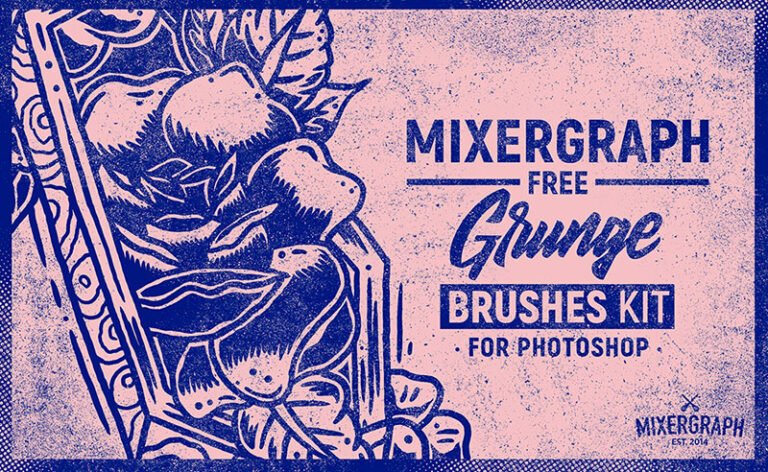
Whether you’re a student, a journalist, or a business professional, knowing how to do high-quality research and writing using trustworthy data and sources, without giving in to the temptation of AI or ChatGPT, is a skill worth developing.
As I detail in my book Writing That Gets Noticed, locating credible databases and sources and accurately vetting information can be the difference between turning a story around quickly or getting stuck with outdated information.
For example, several years ago the editor of Parents.com asked for a hot-take reaction to country singer Carrie Underwood saying that, because she was 35, she had missed her chance at having another baby. Since I had written about getting pregnant in my forties, I knew that as long as I updated my facts and figures, and included supportive and relevant peer-reviewed research, I could pull off this story. And I did.
The story ran later that day, and it led to other assignments. Here are some tips I’ve learned that you should consider mastering before you turn to automated tools like generative AI to handle your writing work for you.
Identify experts, peer-reviewed research study authors, and sources who can speak with authority—and ideally, offer easily understood sound bites or statistics on the topic of your work. Great sources include professors at major universities and media spokespeople at associations and organizations.
For example, writer and author William Dameron pinned his recent essay in HuffPost Personal around a statistic from the American Heart Association on how LGBTQ people experience higher rates of heart disease based on discrimination. Although he first found the link in a secondary source (an article in The New York Times), he made sure that he checked the primary source: the original study that the American Heart Association gleaned the statistic from. He verified the information, as should any writer, because anytime a statistic is cited in a secondary source, errors can be introduced.
Jen Malia, author of The Infinity Rainbow Club series of children’s books (whom I recently interviewed on my podcast), recently wrote a piece about dinosaur-bone hunting for Business Insider, which she covers in her book Violet and the Jurassic Land Exhibit.
After a visit to the Carnegie Museum of Natural History in Pittsburgh, Pennsylvania, Malia, whose books are set in Philadelphia, found multiple resources online and on the museum site that gave her the history of the Bone Wars, information on the exhibits she saw, and the scientific names of the dinosaurs she was inspired by. She also used the Library of Congress’ website, which offers digital collections and links to the Library of Congress Newspaper Collection.
Malia is a fan of searching for additional resources and citable documents with Google Scholar. “If I find that a secondary source mentions a newspaper article, I’m going to go to the original newspaper article, instead of just stopping there and quoting,” she says.
Your local public library is a great source of free information, journals, and databases (even ones that generally require a subscription and include embargoed research). For example, your search should include everything from health databases (Sage Journals, Scopus, PubMed) to databases for academic sources and journalism (American Periodical Series Online, Statista, Academic Search Premier) and databases for news, trends, market research, and polls (the Harris Poll, Pew Research Center, Newsbank, ProPublica).
Even if you find a study or paper that you can’t access in one of those databases, consider reaching out to the study’s lead author or researcher. In many cases, they’re happy to discuss their work and may even share the study with you directly and offer to talk about their research.
For journalist Paulette Perhach’s article on ADHD in The New York Times, she used Epic Research to see “dual team studies.” That’s when two independent teams address the same topic or question, and ideally come to the same conclusions. She recommends locating research and experts via key associations for your topic. She also likes searching via Google Scholar but advises filtering it for studies and research in recent years to avoid using old data. She suggests keeping your links and research organized. “Always be ready to be peer-reviewed yourself,” Perhach says.
When you are looking for information for a story or project, you might be inclined to start with a regular Google search. But keep in mind that the internet is full of false information, and websites that look trustworthy can sometimes turn out to be businesses or companies with a vested interest in you taking their word as objective fact without additional scrutiny. Regardless of your writing project, unreliable or biased sources are a great way to torpedo your work—and any hope of future work.
Author Bobbi Rebell researched her book Launching Financial Grownups using the IRS’ website. “I might say that you can contribute a certain amount to a 401K, but it might be outdated because those numbers are always changing, and it’s important to be accurate,” she says. “AI and ChatGPT can be great for idea generation,” says Rebell, “but you have to be careful. If you are using an article someone was quoted in, you don’t know if they were misquoted or quoted out of context.”
If you use AI and ChatGPT for sourcing, you not only risk introducing errors, you risk introducing plagiarism—there is a reason OpenAI, the company behind ChatGPT, is being sued for downloading information from all those books.
Audrey Clare Farley, who writes historical nonfiction, has used a plethora of sites for historical research, including Women Also Know History, which allows searches by expertise or area of study, and JSTOR, a digital library database that offers a number of free downloads a month. She also uses Chronicling America, a project from the Library of Congress which gathers old newspapers to show how a historical event was reported, and Newspapers.com (which you can access via free trial but requires a subscription after seven days).
When it comes to finding experts, Farley cautions against choosing the loudest voices on social media platforms. “They might not necessarily be the most authoritative. I vet them by checking if they have a history of publication on the topic, and/or educational credentials.”
When vetting an expert, look for these red flags:
- You can’t find their work published or cited anywhere.
- They were published in an obscure journal.
- Their research is funded by a company, not a university, or they are the spokesperson for the company they are doing research for. (This makes them a public relations vehicle and not an appropriate source for journalism.)
And finally, the best endings for virtually any writing, whether it’s an essay, a research paper, an academic report, or a piece of investigative journalism, circle back to the beginning of the piece, and show your reader the transformation or the journey the piece has presented in perspective.
As always, your goal should be strong writing supported by research that makes an impact without cutting corners. Only then can you explore tools that might make the job a little easier, for instance by generating subheads or discovering a concept you might be missing—because then you’ll have the experience and skills to see whether it’s harming or helping your work.
Tips for Overcoming the Temptation of AI in Writing
Artificial Intelligence (AI) has revolutionized various industries, and writing is no exception. With the advent of AI-powered writing tools, it has become easier than ever to generate content quickly and effortlessly. However, while these tools offer convenience, they also pose a significant temptation to rely too heavily on them. As a writer, it is essential to strike a balance between utilizing AI tools and maintaining your unique voice and creativity. Here are some tips for overcoming the temptation of AI in writing.
1. Understand the limitations of AI:
AI tools are impressive in their ability to generate coherent sentences and paragraphs. However, they lack the human touch and creativity that make writing truly engaging. AI algorithms work based on patterns and existing data, which means they may produce generic or formulaic content. Recognizing these limitations will help you appreciate the value of your own writing skills.
2. Embrace your unique voice:
One of the most significant advantages human writers have over AI is their ability to infuse their work with personality and individuality. Your unique voice sets you apart from AI-generated content. Embrace your style, tone, and perspective, and let it shine through your writing. Remember that readers often connect more with authentic human voices rather than robotic ones.
3. Use AI as a tool, not a crutch:
AI can be a valuable tool to enhance your writing process. It can help with grammar and spelling checks, suggest synonyms or alternative sentence structures, or even provide research material. However, it is crucial not to rely solely on AI-generated content. Use these tools as aids to improve your work, but always retain control over the final output.
4. Engage in continuous learning:
Writing is an art that requires constant improvement and growth. While AI tools can provide quick fixes, they cannot replace the benefits of learning and honing your craft. Engage in regular reading, attend writing workshops, and seek feedback from peers or mentors. By investing in your skills, you can develop a unique writing style that AI cannot replicate.
5. Experiment with different writing techniques:
To avoid falling into the trap of relying solely on AI-generated content, experiment with different writing techniques. Try freewriting exercises to stimulate creativity, explore different genres or writing formats, or challenge yourself with writing prompts. These exercises will help you break away from the formulaic patterns that AI often follows.
6. Seek human feedback:
While AI tools can provide suggestions and corrections, they lack the ability to understand the emotional impact of your writing. To ensure your work resonates with readers, seek feedback from real people. Join writing communities, share your work with trusted friends or colleagues, or consider working with an editor. Human feedback will help you refine your writing and ensure it connects with your audience on a deeper level.
In conclusion, while AI-powered writing tools offer convenience and efficiency, it is crucial for writers to resist the temptation of relying too heavily on them. By understanding the limitations of AI, embracing your unique voice, using AI as a tool rather than a crutch, continuously learning, experimenting with different techniques, and seeking human feedback, you can maintain your creativity and produce engaging content that stands out from the crowd. Remember, your writing skills are invaluable, and AI should be seen as an aid rather than a replacement for your talent.






